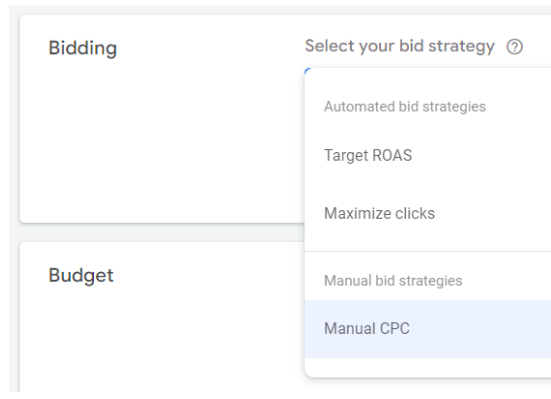In 2023, email marketing continued to be a highly preferred and effective channel for consumers in the United States. It’s the number one way to express a preference for email communication when reaching out to brands, highlighting the enduring significance of email in customer support initiatives. However, navigating the internet’s equivalent of snail mail can occasionally result in a sluggish and less-than-ideal customer experience.
To leverage email effectively within your customer service framework, consider it not just as a communication medium, but as a conduit to guide customers towards swifter support options. 🚀
Email serves as the canvas; the real magic lies in the tools at your disposal. Whether it’s embedding Help Center articles directly into your emails or replacing a basic mailto link with a user-friendly contact form, there are myriad ways to elevate email into a streamlined and efficient support channel. 💡✉️
By seamlessly integrating resources and optimizing the customer journey, you can transform email interactions into a positive and expedited experience, ensuring satisfaction and loyalty among your clientele.
👍 The Good and Bad of Email as a Customer Service Channel 👎
Like all channels, email has its benefits and weaknesses, but you can’t rely on it alone. Here’s what you can expect from email as a customer service channel.
The Good 👍
Email is a commonly preferred channel for customers
📧 Email stands out as a widely favored customer communication channel. Ignoring email support could be a missed opportunity, considering that over half of customers prefer it over social media. This is especially crucial for Direct-to-Consumer (DTC) businesses without the luxury of in-person interactions.
Email allows for longer, more detailed responses to inquiries
💡 Email serves as a vital bridge for connecting with customers. Its capacity for longer, detailed responses makes it an invaluable tool for addressing inquiries comprehensively. Unlike instant channels like social media DMs and SMS, email excels in presenting solutions with embedded links, images, and attachments.
👀 Take, for instance, Dr. Squatch’s compelling promotional email. Through multiple high-quality images, call-to-action buttons, social links, and logos, it showcases how email accommodates even the most elaborate messages.
Email is accessible
🌐 Email’s accessibility is another noteworthy advantage. In today’s digital landscape, having an email address is almost a prerequisite. Whether creating new accounts or reaching out to others, email is omnipresent and compatible across all devices. Consequently, customers expect online stores, at the very least, to offer email support.
The bad 👎
Email tends to be a slower channel
⏳ Email, known for its leisurely pace, tends to move at a slower rhythm. The average first response time for a patient 7 hours and 34 minutes. While many accept this unhurried pace, it doesn’t always align with the optimal customer service experience. For urgent queries, like those concerning product defects or bank account issues, quicker response channels prove more effective. 🚀
Email inquiries can be challenging to categorize and prioritize
📥 Managing email inquiries can pose a challenge, primarily in categorization and prioritization. While email offers creative freedom with subject lines and messages, it places the onus on your agents to navigate the inbox. This goes beyond maintaining a tidy workspace; it’s about ensuring that crucial messages, especially from irate customers, don’t get lost amid the email chaos. 📤🔍
Email Empowerment: Boost Your Customer Support Game! 🚀✉️
Many support teams find managing their inbox challenging due to a constant stream of customer inquiries. To streamline this process, integrating a customer service helpdesk can be a game-changer. Here’s a comprehensive guide on leveraging email within your customer support program:
Utilize Contact Forms Instead of Email Addresses:
- Why? To enhance organization and improve service quality.
- How? Replace raw email links with contact forms on your website. These forms offer structured data, guiding customers through step-by-step processes, making communication more approachable and organized. 🗂️ ✨
💡 Tip: We recommend that merchants don’t direct customers to an email address for support. Instead, use a contact form to intake email support. Contact forms are superior because messages get structural data that helps customer service agents categorize and prioritize incoming tickets.
Funnel Customers to Faster Channels:
- Why? To boost customer satisfaction scores (CSAT).
- How? Initiate interactions via email but seamlessly transition to faster channels like voice support, SMS, or WhatsApp when needed. Prioritize speed and efficiency in responding to urgent customer needs. 👍
Prioritize Tickets Based on Topic and Urgency:
- Why? To maintain organization and increase customer retention.
- How? Categorize tickets using tools to ensure urgent matters are addressed promptly. Implement rules to auto-tag specific topics, streamlining the resolution process. 🗂️ 🤝
Use Templates for Consistent Service:
- Why? To improve service quality and maintain brand voice.
- How? Embrace automation with Macros, and pre-written sample emails, to quickly address common queries. This ensures a consistent standard of service while allowing agents to personalize responses when needed. ✨ 🗣️
Enrich Emails with Customer and Order Information:
- Why? To boost customer satisfaction and service quality.
- How? Integrate your e-commerce platform with customer information. Automatically populate emails with relevant data, such as order status and tracking information. 👍 ✨
Supplement Emails with Self-Service Resources:
- Why? To improve customer satisfaction scores and reduce ticket volume.
- How? Establish a Help Center with linkable articles to address common issues. This resource acts as a self-service hub, empowering customers to find answers independently, and freeing up agents to handle more unique inquiries. 👍 🔻
By implementing these strategies, you can transform email into a powerful tool for efficient and customer-centric support, enhancing the overall experience for both your team and customers.











Leave feedback about this